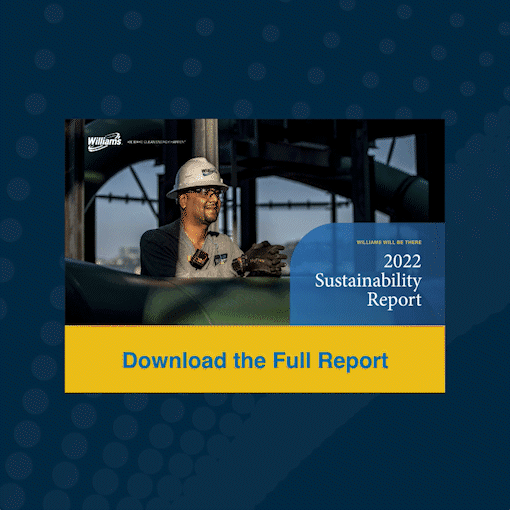
Establishing fair approaches to job creation, terms of employment, compensation and working conditions are essential for Williams. As such, Williams is committed to fostering a workplace where business is conducted consistent with our Core Values, Code of Business Conduct and company policies. We also provide tools to our leaders to better equip them to create transparency around our compensation programs. This engagement helps employees understand the link between their pay and the value they bring to Williams in a fair and unbiased atmosphere. Additionally, we complete an annual pay equity review process to promote Williams’ equal employment opportunity policy. We do not include salary history questions in our application process. We promote, and in some cases require, trainings that influence inclusive hiring and mitigate bias in the hiring process; for more information, please refer to the Employee Attraction, Retention & Development section.
Organized labor is an important voice for expanding domestic energy infrastructure, and we have strong relationships with unions in many areas throughout our pipeline footprint. Williams recognizes the right of employees under the National Labor Relations Act to organize, form, join or assist unions and engage in protected, concerted activities. However, because we encourage a direct partnership with our employees, we do not believe in the need for an outside group to speak on our workers’ behalf. In 2022, zero Williams employees were represented under collective bargaining agreements.
In 2022, Williams worked with six trade unions, including members of the IBEW, Iron Workers, Teamsters, Pipeliners Local 798, International Union of Operating Engineers and LIUNA organizations. Also, our Regional Energy Access Expansion project was awarded to contractors using organized labor. In total, 34 miles of Williams’ pipelines were constructed and 20% of contracts executed by companies using organized labor in 2022.


